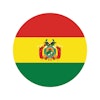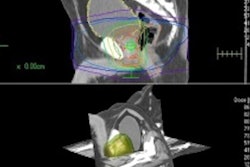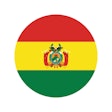
Global access to healthcare and its quality improved between 2000 and 2016, but there are major variations between countries around the globe, according to the Global Burden of Disease (GBD) study published online on 23 May in the Lancet.
A team led by Dr. Rafael Lozano of the University of Washington in Seattle measured the quality and accessibility of healthcare using the GBD committee's 2016 Healthcare Access and Quality Index, which included 32 causes of death that should be preventable with effective medical care.
Each of the 195 countries and territories assessed were given a score between 0 and 100; for the first time, the report also analyzed healthcare access and quality between regions in Brazil, China, England, India, Japan, Mexico, and the U.S. The study was funded by the Bill and Melinda Gates Foundation.
The report found the following:
- The global average healthcare access and quality score was 54.4 in 2016, compared with 42.4 in 2000.
- Disparities between countries remained similar over the study timeframe, with a 78.5-point gap between the best and worst performing countries in 2016 compared with 79.3-point gap in 2000.
- Countries with the highest levels of healthcare access and quality in 2016 were Iceland (97.1), Norway (96.6), the Netherlands (96.1), Luxembourg (96), Finland (95.9), and Australia (95.9).
- Countries with the lowest scores were the Central African Republic (18.6), Somalia (19), Guinea-Bissau (23.4), Chad (25.4), and Afghanistan (25.9).
Ethiopia, Rwanda, Equatorial Guinea, Myanmar, and Cambodia saw the most improvements during the study time period, while progress in the U.S. (including Puerto Rico), Panama, and Mexico slowed, the researchers found. China and India had the widest disparities in healthcare access and quality, with 43.5- and 30.8-point differences. Japan had the narrowest disparity, with a 4.8-point difference across its regions.
| Healthcare access and quality scores in seven countries | ||
| Country | 1990 | 2016 |
| Brazil | 46.5 | 63.8 |
| China | 42.4 | 77.9 |
| England/U.K. | 78 | 90.5 |
| India | 24.7 | 41.2 |
| Japan | 80.9 | 94.1 |
| Mexico | 45.5 | 66.3 |
| U.S. | 80.7 | 88.7 |
Although overall healthcare access and quality has improved, there's more work to be done, Lozano said in a statement released by the Lancet.
"These results emphasize the urgent need to improve both access to and quality of healthcare, otherwise health systems could face widening gaps between the health services they provide and the disease burden in their population," he said. "Now is the time to invest to help deliver health systems for the next generation."



















